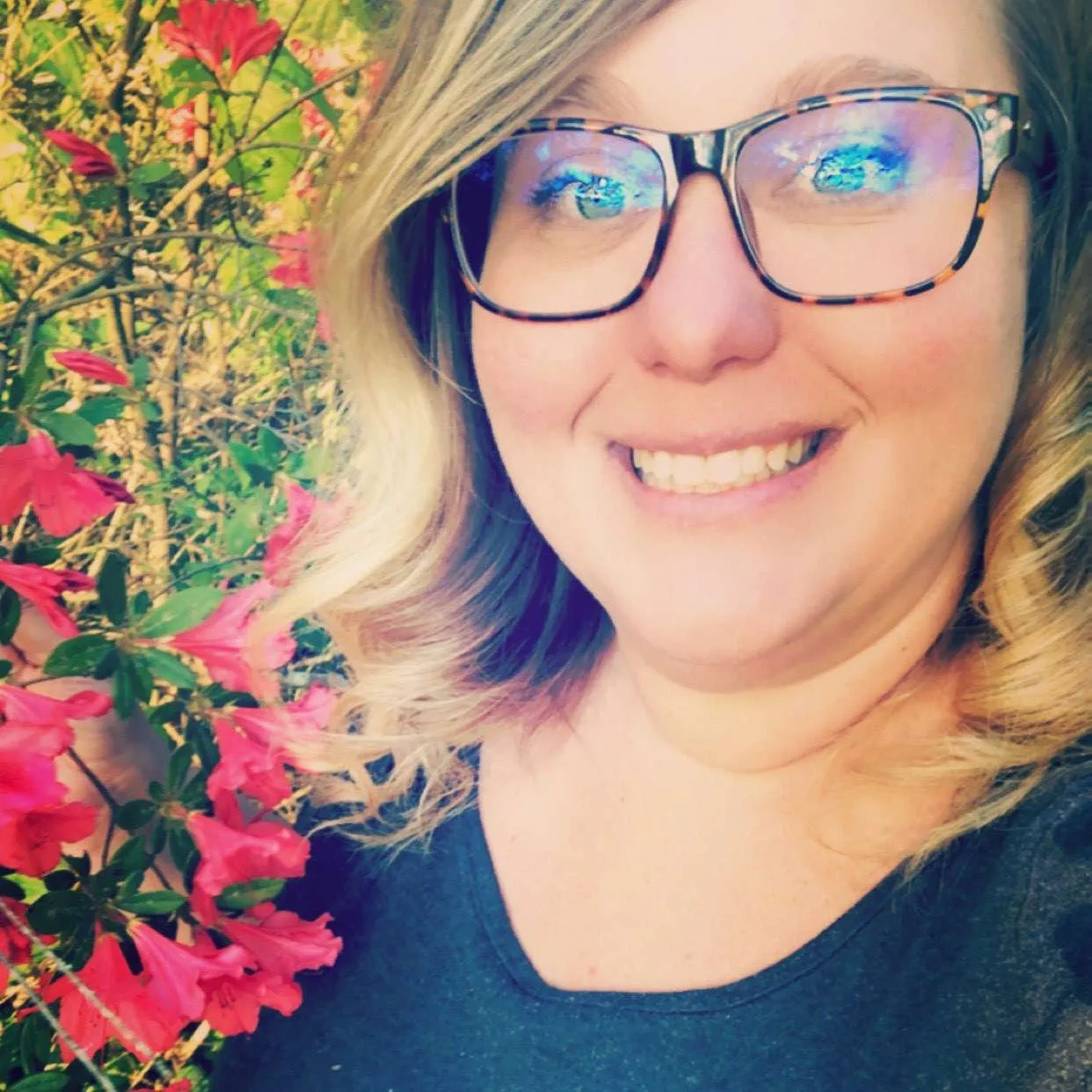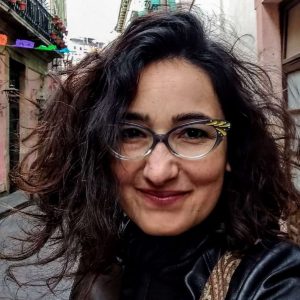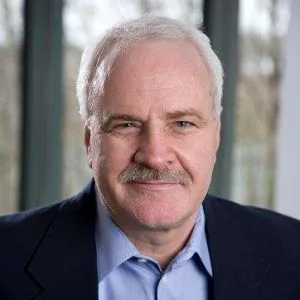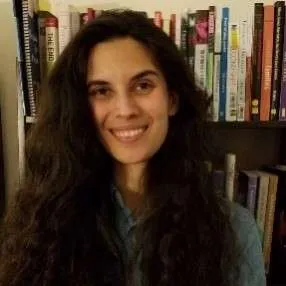Editorial Note:
This profile of Raeda Anderson, PhD is presented as part of a larger project with the intentions of: 1) providing students with examples of applied sociology, 2) providing market value to sociological skills and services, and 3) promoting the work of individual sociological practitioners and organizations. Please explore our full Profiles in Applied and Clinical Sociology series for more examples of applied sociology..
Raeda Anderson, PhD
Raeda Anderson is “a Research Scientist at the Crawford Research Institute at Shepherd Center, a top 10 rehabilitation hospital for people with disabilities in Atlanta, Georgia, where [she] completes research on technology used by people with disabilities as well as big data analysis. Additionally, [she is] a statistical consultant for the Department of Energy.” She began her research career as a sociologist by earning a BA in Sociology and Anthropology from Valdosta State University. She later earned her MS in Applied Sociology from the same university and went on to earn a PhD in Sociology with a doctoral minor in Survey Research and Methodology from University of Nebraska-Lincoln.
When we asked Dr. Anderson about the services her research institute offers, she told us:
A significant proportion of my work at Shepherd Center is completing research for technology companies, especially Microsoft. Teams at Microsoft reach out to the technology researchers at Shepherd Center and we help them design and carry out studies on new and existing technology for people with disabilities. Each study is different, both in the degree to which we assist with their project as well as topic, and it makes for an absolutely amazing relationship.
Raeda Anderson, PhD
So many sociologists want to do research that makes a notable influence, and that is exactly what we are doing with helping those people who develop technology have feedback from people with disabilities on improving the technology we all use.
Dr. Anderson also mentioned that research instutes like the Shepherd Center are always looking for professionals with skills in data collection (interviews and surveys), data management, qualitative analysis, quantitative analysis, grant writing, and publishing. You can connect with Dr. Anderson on Twitter and LinkedIn.
Read the full interview with Dr. Anderson below to learn more about her work and the insight she has to offer!
Using Sociology in Practice
How did you establish yourself as an applied or clinical sociologist?
Establishing myself as an applied sociologist required a large amount of additional effort outside of my academic training. I took the initiative to complete internships and research projects to connect myself to community groups including the Department of Labor (Georgia), Mayor’s Council for People with Disabilities (Valdosta, Georgia), America’s Second Harvest (Valdosta, Georgia), Bureau of Sociological Research (Lincoln, Nebraska), as well as healthcare and community facilities (hospitals, senior centers, community centers). Projects and connections outside of academia were of paramount importance to gain experience, develop my portfolio, work with community partners, and make connections for future work.
I strongly suggest students and early career applied and clinical sociologists connect with other applied and clinical sociologists. I have had overwhelmingly positive experiences reaching out to applied and clinical sociologists without any previous connection, aka cold calling, and they have turned into amazing friends, colleagues, and coauthors.
How do you use sociological research methods in practice?
I use sociological research methods each day. As a Research Scientist with sociological training, I have a rather diverse training background in data (collection, cleaning, management), survey design (survey, interviews, focus groups), and methods (qual, quant, and mixed) and I can work easily with people from drastically different training backgrounds.
How do you use sociological theory in practice?
Sociological theories, both classic and modern, are a key component of my work. Overwhelmingly, my research is first developed within a theoretical framework prior to being analyzed. Many people are surprised to find that at the beginning of data analysis meetings I always start with theory to frame the process and model.
Lessons for Future Practitioners
What types of courses should undergraduate students take in preparation for a career similar to yours?
Statistics, Qualitative Analysis, Research Methods, Sociological Theory, Health and Disability courses, and anything on data collection and analysis.
What types of courses should graduate students take in preparation for a career similar to yours?
In addition to the suggestions for undergraduates…
The best advice I received was “it is much easier to teach yourself a substantive area than research methods and analysis”. So, I suggest filling your open course requirements with research methods and analysis courses. If you are a quantitative person, take a qualitative class. If you are a qualitative person, take a quantitative class. I promise you that the skills you learn will be invaluable long term.
What types of experiences should undergraduate students seek in preparation for a career similar to yours?
Internships and research projects that involve people outside of academia. Ideally, find a part time job that works with researchers in your community.
What types of experiences should graduate students seek in preparation for a career similar to yours?
In addition to the suggestions for undergraduates, land grants, participate in data collection and analysis, and generate publications and conference presentations.
For grants, start small (e.g. department and around $500) and work up to larger (e.g. NSF and $10,000). Seek out NSF, NIH, DOD, and external grant funded projects to work on and before you graduate apply for (and ideally land) multiple grants.
Participate in data collection. Most people who work in healthcare research collect data regularly and participate in multiple studies at one time. You will be expected to have these skills.
Publishing and presenting at conferences is exceptionally important for healthcare researchers. Publications and conference presentations are common outcomes for grant funded work. Find conferences that your ‘dream career’ folks will be at and present there. Make connections at the conference. Ideally publish and present with others to show you work well with other researchers.
What texts or authors can people reference to learn more about the work you do as an applied or clinical sociologist?
This is a very tough question to answer. In sociology there is only a small percent of researchers who focus on disability research and there is a small percent who are applied sociologists. Thus, there are very few applied sociologists who focus on disabilities. Please feel free to reach out to me directly (on Twitter or LinkedIn) and I will be willing to talk with you!
More generally, what are the best outlets to learn more about the work you do as an applied or clinical sociologist?
www.Shepherd.org and https://www.shepherd.org/resources-healthcare-professionals/research/research-at-shepherd
How would you describe the daily life of an applied or clinical sociologist?
Amazing and full. I was a professor at an R1 prior to moving into a full time applied position. I have been amazed at how quick research unfolds as well as how many projects are going on at one time. For example, this week we are collecting interviews for two studies, have three survey studies underway, and are analyzing the results for about six other studies. Some years we do up to 30 research projects – just for technology. The work is very team oriented and collaborative.
What advice do you have for aspiring applied and clinical sociologists?
Learn all that you can inside and outside of academia about research methodology. Learn the methods used in complimentary disciplines (e.g. psychology, physical therapy, nursing, gerontology).
Make connections with other applied sociologists through conferences, social media, as well as reaching out to graduates of applied sociology programs.








